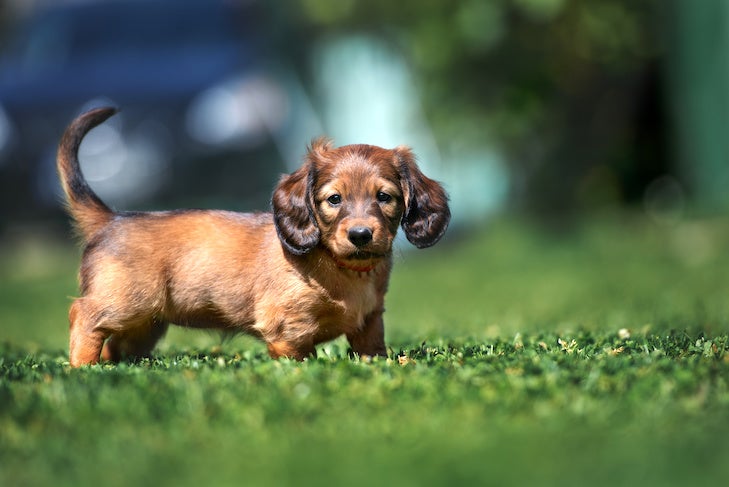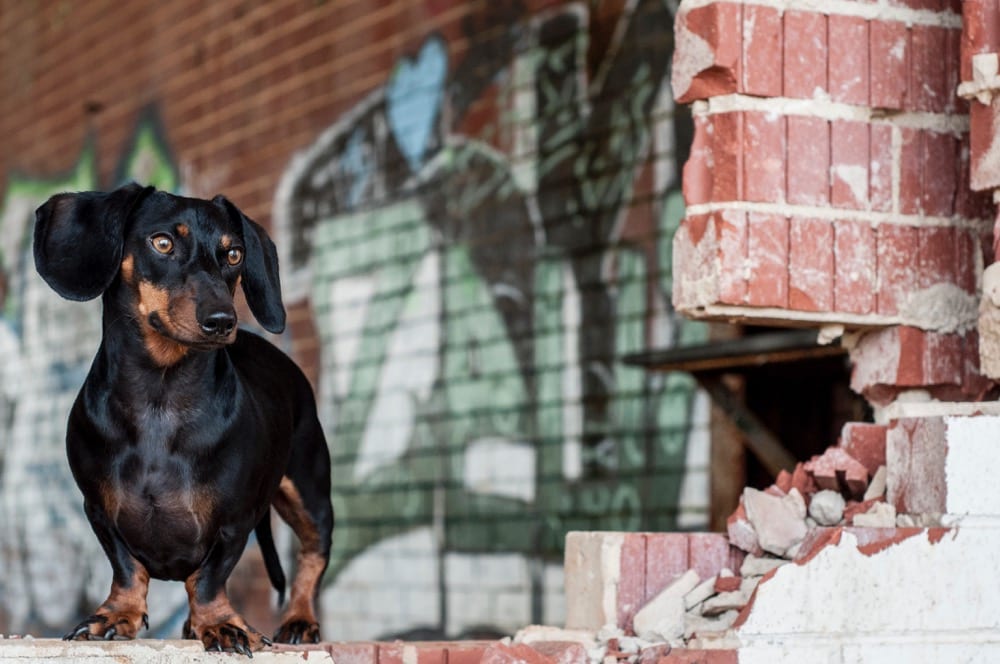Dachshunds, with their long, low bodies and charming personalities, are a joy to have as pets. However, their independent streak and occasional stubbornness can make potty training a bit challenging. Fear not—with the right approach, consistency, and positive reinforcement, you can guide your dachshund to become a house-trained superstar. This guide offers practical tips and techniques to help make the process as smooth as possible.
Contents
- 1 Understanding Your Dachshund’s Unique Needs
- 2 Choosing the Right Time and Training Method
- 3 Creating a Positive Potty Training Environment
- 4 Establishing a Consistent Routine
- 5 Positive Reinforcement: Encouraging Good Behavior
- 6 Managing Accidents and Setbacks
- 7 Overcoming Common Potty Training Challenges
- 8 Tracking Progress and Celebrating Success
- 9 Conclusion
Understanding Your Dachshund’s Unique Needs

Before diving into training strategies, it’s important to understand your dachshund’s biological and behavioral traits:
- Small Bladders: Dachshunds, like many small breeds, have smaller bladders, meaning they need frequent potty breaks, especially as puppies.
- Individual Differences: Some dachshunds pick up training quickly, while others may take longer. Patience is crucial as every dog progresses at their own pace.
- Routine-Oriented: Dachshunds thrive on structure, so a consistent potty schedule can make the process easier for both of you.
Choosing the Right Time and Training Method
Potty training can start as early as 8 weeks, but most experts recommend waiting until your puppy is around 12 weeks old and comfortable in their new environment. Starting too early may lead to setbacks.
Popular Potty Training Methods
- Crate Training: Teaches dogs to avoid soiling their sleeping area.
- Pee Pad Training: Suitable for apartment living or inclement weather.
- Outdoor Training: Ideal for homes with yards and consistent outdoor access.
Choose the method that best fits your living situation, but remember that consistency and positive reinforcement are key regardless of the approach.
Creating a Positive Potty Training Environment

A supportive environment can set your dachshund up for success:
- Designate a Potty Spot: Choose a specific area outdoors or a dedicated indoor space with pee pads. This consistency helps your pup associate the spot with elimination.
- Minimize Distractions: Keep toys, food, and other pets away during potty time to help your dachshund focus.
- Use Calming Cues: A soothing tone or specific phrase like “go potty” can help ease anxiety and establish a clear command for the task.
- Monitor Closely: Supervise your dachshund, especially during the early stages, to catch accidents early and redirect them to the designated spot.
Establishing a Consistent Routine

Consistency is the cornerstone of successful potty training.
Tips for a Reliable Schedule
- Regular Breaks: Take your dachshund out first thing in the morning, after meals, before bedtime, and every few hours in between. Puppies may need breaks as often as every 1–2 hours.
- Use Cue Words: Phrases like “do your business” or “go potty” can signal what you want your dog to do.
- Monitor Water Intake: Keep an eye on when your dachshund drinks water, especially in the evening, to help manage nighttime accidents.
- Stay Patient: It takes time to establish a routine. Remain calm and consistent, even if progress is slow.
Positive Reinforcement: Encouraging Good Behavior

Positive reinforcement is one of the most effective ways to train a dachshund. Reward your pup immediately after they successfully potty in the designated spot.
Ways to Reward Your Dachshund
- Praise: Use an enthusiastic voice to let them know they’ve done well.
- Treats: Offer small, healthy snacks as a reward.
- Playtime: A brief play session can reinforce good behavior.
- Clicker Training: If you’re using a clicker, pair it with treats or praise to mark the behavior.
Avoid punishment or scolding, as this can create fear and confusion, slowing progress.
Managing Accidents and Setbacks
Accidents are a normal part of potty training. How you respond can make a big difference:
- Stay Calm: Avoid scolding or punishing your dachshund, as this can cause anxiety and setbacks.
- Clean Thoroughly: Use pet-safe cleaners to eliminate odors and discourage repeat accidents in the same spot.
- Redirect Immediately: If you catch your dachshund in the act, calmly redirect them to the designated potty area.
- Evaluate the Routine: Frequent accidents may signal the need for more frequent potty breaks or adjustments to the schedule.
Overcoming Common Potty Training Challenges
Dachshunds come with their own set of quirks, which may present challenges during training. Here’s how to handle some of the most common issues:
Submissive Peeing
- Avoid looming over your pup or using a stern voice.
- Use calming cues and encourage confidence.
Marking Behavior
- Neuter or spay your dachshund if marking becomes a problem.
- Reinforce regular potty breaks and praise for eliminating in the correct spot.
Adverse Weather
- Use pee pads indoors for rainy or cold days, or invest in a covered potty area outside.
Older Dachshunds
- Training an older dog requires extra patience but follows the same principles. Use high-value rewards to motivate them.
Tracking Progress and Celebrating Success
Keep an eye on your dachshund’s progress and celebrate milestones:
- Accident-Free Days: Recognize when your dachshund starts going longer periods without accidents.
- Responding to Cues: Celebrate when your pup begins associating commands with actions.
- Routine Mastery: Once your dachshund consistently follows the potty schedule, consider the training a success.
Conclusion
Potty training a dachshund requires patience, consistency, and positive reinforcement. By understanding their needs, establishing a routine, and providing a supportive environment, you can help your dachshund master the art of house training. Remember, accidents are part of the process, and staying calm and encouraging will lead to better results. With time and effort, your dachshund will become a house-trained superstar, ready to share a happy and clean home with you!
